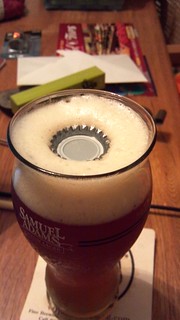This is correct. The "proper" way to FWH (according to what I've read in books) is to replace one of the later additions, however, I don't think most follow this. From what I've seen, most will either replace the 60min addition or add a FWH as a completely new addition. I've experimented with all three, and found that it really depends on the type of beer, and whether you're formulating a new recipe vs. changing one that you've brewed many times.
If you're changing an old recipe and you only want more smoothness without adding any more perceived bitterness, then you would probably want to replace a later addition. If you're wanting to increase the bitterness and overall hoppiness while making it more smooth, add a FWH addition as a completely new addition.
Personally, I think they're all great ways to add hops and which one you chose is mostly based on what you want the final product to be.

























![Craft A Brew - Safale S-04 Dry Yeast - Fermentis - English Ale Dry Yeast - For English and American Ales and Hard Apple Ciders - Ingredients for Home Brewing - Beer Making Supplies - [1 Pack]](https://m.media-amazon.com/images/I/41fVGNh6JfL._SL500_.jpg)
































